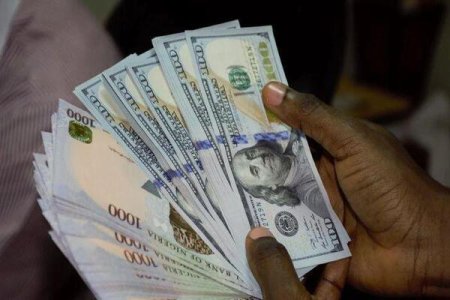
Nigeria's naira plunges to a one-month low of 1,470 against the dollar on the black market. Discover the factors driving this decline, including dollar shortages and speculative trading, and explore expert insights on potential solutions to stabilize the currency amidst growing concerns.
The Nigerian naira plummeted to a one-month low of 1,470 against the dollar on the black market, driven by a combination of dollar shortages and speculative activities. Street traders at CMS, Lagos Island, highlighted the scarcity of dollars and surging demand, exacerbating the currency's depreciation.
The daily trading pattern revealed a staggering 2.04 percent decline from Thursday's rate of N1,440 per dollar. Meanwhile, data from the FMDQ Securities Exchange Limited showed a weakening trend, with the dollar closing at N1,459.73 on Thursday compared to N1,421.06 on Wednesday at the Nigerian Autonomous Foreign Exchange Market (NAFEM).
Bismarck Rewane, the managing director/chief executive officer of Financial Derivatives Company Limited, emphasized the urgent need for naira revival during his presentation at the Lagos Business School in May 2024. Rewane underscored the necessity for swift measures to bolster the currency, proposing an infusion of fresh funds through Eurobonds and Diaspora flows, with targets ranging from $19 to $25 billion.
Explaining the persistent pressure on the naira, Rewane attributed it to Nigeria's external imbalances, including disruptions in oil production, declining oil prices, and speculative activities. He pointed out the negative trade balance equivalent to 0.86 percent of GDP, intensifying pressure on the Nigerian currency market.
Furthermore, Rewane highlighted how regulatory arbitrage has worsened the situation, complicating efforts to stabilize the naira. He noted the fluctuating trajectory of the naira, mentioning its overvaluation before the FX reform in June 2023, undervaluation between July 2023 and December 2023, and subsequent overvaluation since January 2024.
"The naira has a checkered history, witnessing profound disruption over the past three decades. It remains a non-convertible currency, its exchange rate influenced by economics, politics, and policy," remarked Rewane, encapsulating the complex dynamics surrounding Nigeria's currency.






